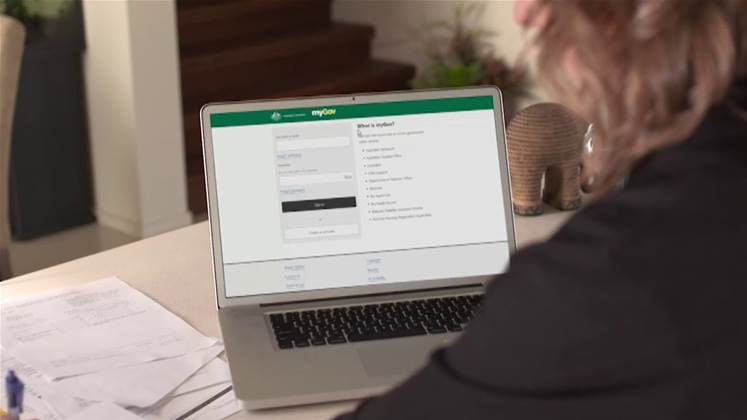The federal government intends to change how citizens authenticate to the myGov system from next year, moving to passwordless approaches such as passkeys and facial recognition.

At the press conference, government services minister Bill Shorten said the government planned to "upgrade the security of the myGov system."
He said myGov "will benefit from a number of changes to how customers can sign-in, ensuring that accounts and personal information remain protected.”
Passkeys are set to be established “to bring myGov into the 21st Century."
In addition, the government plans to harness face recognition capabilities on devices as part of the log-in process.
"What we want to do in the future, and we will do it in the first six months of next year, is that we want to use the security capabilities and functionalities of your smartphone or your Android phone and that can be the way you access myGov," he said.
"It'll be harder to be a victim of phishing schemes and scams, if you use the facial recognition software on your phone as your means to access government services.
"It's used in the private sector. This adds a new level of security and comfort for Australians."
Shorten added: “These important sign-in alternatives are familiar to many Australians, and are a key safeguard against scammers who use phishing tactics to harvest personal information, like people’s date of birth to fraudulently access accounts.
“Under Labor, we want a safe and secure myGov."
Also today, Shorten unveiled the make-up of a new advisory group that will provide insights aimed at improving the myGov customer experience.
The new group will be led by former NSW Minister for customer service and digital government Victor Dominello.
Minister for government services and the NDIS Bill Shorten said the advisory group was set up as a result of a key recommendation from the myGov user audit, which considered the one-stop shop portal to be a critical part of Australia's digital infrastructure.
Other than Dominello, the panel comprises seven members from across an extensive list of industries.
The panel includes:
- Johanna Weaver, founding director of the Tech Policy Design Centre at ANU
- Leanne Ho, former chief executive officer at Economic Justice Australia, pro bono partner at Wotton + Kearney
- Caroline Edwards, Victorian Commissioner to the Americas
- Karen Batt, Victorian state secretary, CPSU
- Dr Simon Longstaff, executive director at The Ethics Centre
- Professor Angie Abdilla, professor, ANU School of Cybernetics
- Professor Ed Santow, professor, UTS Human Technology Centre and former Australian Human Rights Commissioner
- Amit Singh, managing partner at Mandala
Speaking at a press conference in Sydney, Shorten said the “advisory board will give myself and the Albanese government advice on the best way to do digital rollout.”
“I, like many people in NSW, are very favourably impressed by former minister Dominello's stewardship of the Service NSW system," Shorten said.
“I think that Service NSW is right up there amongst the best product offerings for people trying to use the internet to access government services”.
Shorten said he wanted to avoid a repeat of the illegal Robodebt scheme, in part by setting up a diverse panel of "human rights specialists, ethicists and digital experts" to vet projects.
“This advisory board, I think, is a really elegant solution to making sure that in the future, when governments have ideas, [that] they really work [in practice]," he said.
In a separate statement, Shorten said he was “thrilled” Dominello had accepted the invitation to lead the advisory group “which will provide me with advice and assurance on approaches to designing, funding and prioritising customer-centred improvements for myGov."
“Victor Dominello is one of Australia’s top innovators and his leadership, influence and passion for customer-centred digital service delivery has already delivered significant benefits to NSW residents during his time as a minister,” Shorten said.
He added Dominello was also made recently made chair of the ministerial Digital ID expert panel.
“His influence in both myGov and Digital ID developments will provide a more holistic approach to transforming government digital service delivery," Shorten said.
Shorten added: “I look forward to working with the advisory group on further measures to improve the site, bolster security, and lock out the scammers."

.jpg&h=140&w=231&c=1&s=0)
.jpg&h=140&w=231&c=1&s=0)
.png&h=140&w=231&c=1&s=0)

















